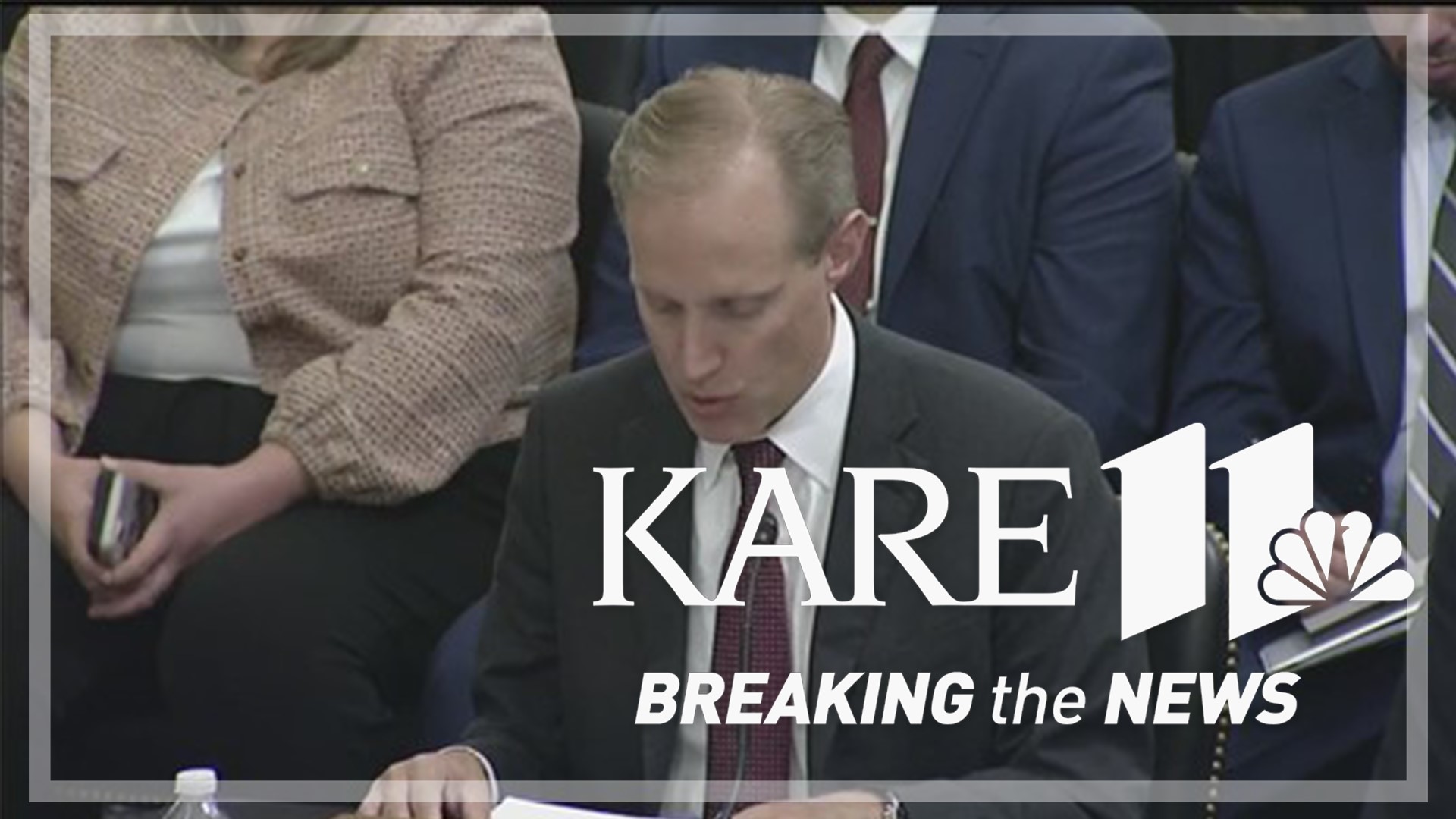MINNEAPOLIS — Deepfake videos of candidates, misleading ads and misinformation about polling places are all deceptive practices that will be much easier to pull off with the assistance of artificial intelligence.
That was the warning from Minnesota Secretary of State Steve Simon and other experts who testified before the U.S. Senate Rules Committee Wednesday in the nation's Capital.
"In the wrong hands, AI could be used to misdirect intentionally, and in ways that are far more advanced than ever," Simon told senators.
"Artificial Intelligence is not a threat to American democracy in and of itself, but it is an emerging and powerful amplifier of existing threats."
His fellow Minnesotan Sen. Amy Klobuchar chairs the Rules Committee. She wanted to delve more deeply into the issue because she's got a bi-partisan bill in the hopper that would spell out the rules against using AI technology to trick voters.
Sen. Klobuchar cited the example from earlier this year when a digitally cloned version of Sen. Elizabeth Warren appeared on a social media clip falsely saying that Republicans shouldn't be allowed to vote.
She noted the proliferation of voice cloning software that allows anyone to sound like anyone else, leading voters to wonder which messages are the real thing and which are bots.
"Software which can create voice recordings that sound like, say, President Biden or other elected officials from either party. This means that anyone with a computer can put words in the mouth of a leader!" Klobuchar told her Senate colleagues.
"It literally could undermine our entire democracy if citizens can't tell the difference between who their candidate is and who's a fake candidate."
She's looking to bolster the case for legislation that crack down on those who weaponize artificial intelligence to trick voters. The measure, co-sponsored by Republicans Susan Collins of Maine and Josh Hawley of Missouri, would make it easier to bring civil actions to take down fake content and hold those who disseminated it accountable.
Simon said beyond deepfake messaging, artificial intelligence technology could also be used by domestic and foreign organizations to disrupt an election by sending voters to the wrong polling places.
"I remember seeing a paper leaflet from an election about 20 years ago distributed in a particular neighborhood that told residents that in the coming election, voting would occur on Tuesday for those whose last names begin with the letters A through L, while everyone else would vote on Wednesday," Simon recalled.
"That was a paper leaflet from a couple or more decades ago. Now imagine a convincing seeming email or deepfake conveying that kind of disinformation in 2024."
Maya Wiley, who heads the Leadership Conference on Civil and Human Rights, reminded the committee that Russian operatives targeted Democratic strongholds with sophisticated misinformation campaigns during the 2016 Elections. She said those efforts were aimed disproportionately at areas with higher populations of Black and Latinx voters.
Simon also told of a phenomenon that’s been called “the liar’s dividend” when it comes to messaging confusion over deceptive ads.
"The mere existence of AI can lead to undeserved suspicion of messages that are actually true - a video, for example, that contradicts a person's preconceived ideas may now be simply dismissed as a deepfake."
Opponents warn that AI is already used in modern photography and video editing programs used in all campaign ads to remove blemishes or enhance backgrounds.
"AI is so intricately woven into modern content creation that determining whether a particular ad contains AI-generated content is very difficult. I suspect every senator here has used AI content in their ad campaigns, knowingly or not," said Neil Chilson of the Center for Growth and Opportunity at Utah State University.
"Because AI is so pervasive in ad creation, requiring AI content disclosures could affect all campaign ads. Check-the-box disclosures won’t aid transparency. They will only clutter everyone’s political messages."
Chilson asserted that AI technology isn't going to make a difference when it comes to deceptive messaging because most of that is being done currently using older tools of the trade.
WATCH MORE ON KARE 11+
Download the free KARE 11+ app for Roku, Fire TV, Apple TV and other smart TV platforms to watch more from KARE 11 anytime! The KARE 11+ app includes live streams of all of KARE 11's newscasts. You'll also find on-demand replays of newscasts; the latest from KARE 11 Investigates, Breaking the News and the Land of 10,000 Stories; exclusive programs like Verify and HeartThreads; and Minnesota sports talk from our partners at Locked On Minnesota.
- Add KARE 11+ on Roku here or by searching for KARE 11 in the Roku Channel Store.
- Add KARE 11+ on Fire TV here or by searching for KARE 11 in the Amazon App Store.
- Learn more about the KARE 11+ app for Apple TV in the Apple App Store.
- Learn more about KARE 11+ here.
Watch more local news:
Watch the latest local news from the Twin Cities and across Minnesota in our YouTube playlist:

